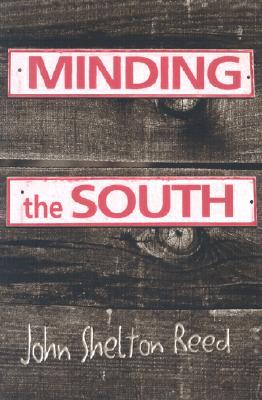Longtime readers of Chronicles are familiar with John Shelton Reed, who used to write a column for this magazine. Those less familiar may recall the occasional news story based on the latest intelligence-gathering done by the University of North Carolina’s Center for the Study of Southern Culture, which Professor Reed founded. Well-known among his fellow Southern sociologists, he has had several brushes with wider fame as the man behind the concept of Death cigarettes (which either were, or nearly were, nationally marketed) and the author of the keynote essay for the 1996 Atlanta Olympics’ official program, explaining the South to foreigners. Over the course of a full career, most of it spent at the University of North Carolina, Chapel Hill, John Shelton Reed has published widely—from monographs to collections of his Chronicles column. This book apparently collects everything else—book reviews, essays, addresses, the odd interview and movie review—and fans of Professor Reed will enjoy it very much.
As it is heavy on book reviews, this collection may be regarded as an interestingly eclectic, heavily annotated, and necessarily brief booklist of three decades’ worth of Southern reading, ranging from Norman Yetman’s Life Under the “Peculiar Institution”: Selections from the Slave Narrative Collection (which Reed reviewed in 1973) to works by Mel Bradford and C. Vann Woodward, and thence diverging to Florence King, Tony Horowitz, and John Connally. Though, as a reviewer, John Reed has made it his standard practice to be either kind or silent, included here is one damning review (of the error-ridden The South by B.C. Hall and C.T. Wood), which illustrates why knowledgeable and responsible reviewers must occasionally sharpen their hatchets. Reviewing is so prone to either fatuous praise or sophomoric invective that it is refreshing to see how a polite yet justifiably skewering review ought to be done.
It is something, I think, to be able to boast that the author of Roll, Jordan, Roll once lived above your garage. (Eugene Genovese’s 1995 collection The Southern Front Reed reviews here.) Reed has a good appreciation of Louisa McCord, a South Carolina writer and polemicist who had a remarkable career before and during the War Between the States and who deserves to be much better remembered than she is. Though this book is not as full of amusing oddities as some of Reed’s other collections are, it has its share of them; and everywhere you will find displays of Reed’s good humor and wit, which must have made him a standout at all those sociological meetings and which transfer nicely to the printed page.
There are several personal pieces added as well, in which we learn about his mixed ancestry (he had a Yankee mother), his love for the Episcopal Church, and his roots in Republican Tennessee, which explain most fully, perhaps, his tenacious allegiance to the G.O.P. We also hear about his road to Southern studies, a winding path that led him through MIT and Columbia. For his Columbia dissertation, the young Reed reanalyzed 30 years’ worth of Gallup poll data that he expected would show the disappearance of regional differences in Dixie as the South urbanized. What he found, however, was the opposite—the South was holding on to her own ways and opinions as hard as ever—and his explanation for why that was gave him the clue to an understanding of Southernness that has shaped, he says, much of his career.
In myriad ways, with its 45 pieces published over 30 years, Minding the South raises the questions that John Reed has been mulling all his life. As he puts it in his essay on Confederates in the Attic: “What does it mean to be ‘Southern’—if, indeed, it means anything these days? Is there one ‘Southern heritage’ or many? Who gets to decide what that phrase means?” Finally, he adds, “How are we going to deal with a past that, like most people’s, is a mixture of triumph and tragedy, grandeur and squalor, oppression and accomplishment?” John Shelton Reed seems to think that you cannot read too much, or ask too many questions, or love the admirable too much, or laugh too long at the absurd. It is a method well worthy of its subject.
[Minding the South, by John Shelton Reed (Columbia and London: University of Missouri Press) 291 pp., $9.00]

Leave a Reply